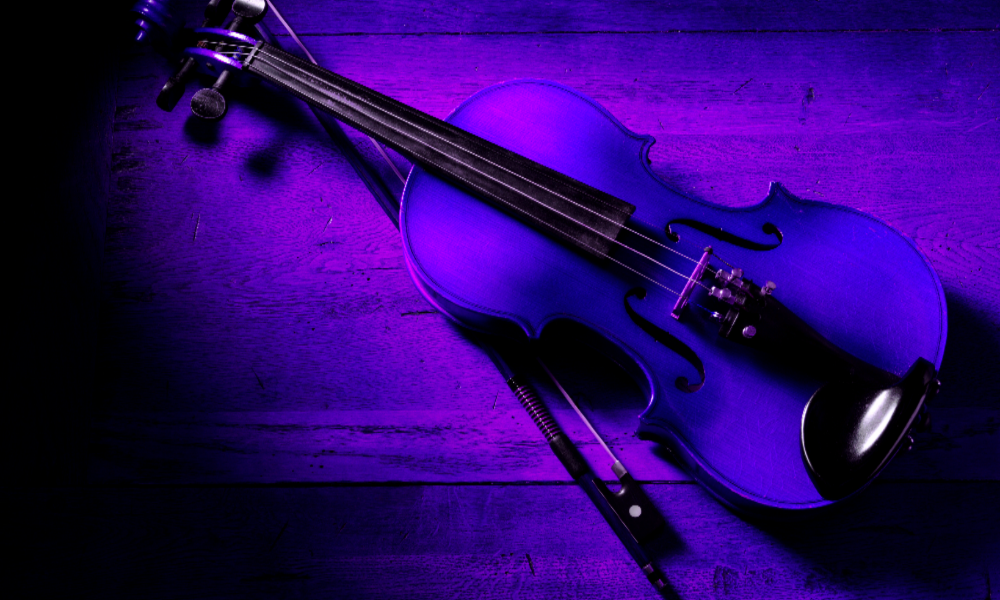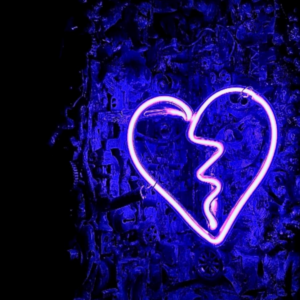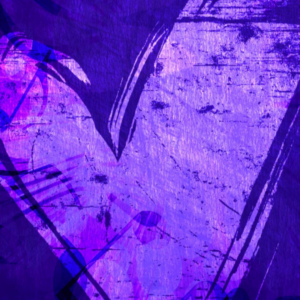I run through the night. I wish I had a lamp. I wish for a map, a blanket, water. But there was no time to pack. All I have is a handful of maple sugar candies and the little book Istvan shoved into my coat before he dragged my hood up and pushed me outside, shouting for me to run. Run now! They know about my Harmonies. They want to kill me.
So I run. I ache all over—my feet, my knees and hips, my back and ribs, my head, even my eyes throb from staring into the darkness. My throat burns in the cold, and I cough deep in my chest. I’ve never run like this before, not this fast, not this long.
I veer off the road into the woods and slow to a walk. I find some bushes clustered against a tall rock, and I sink to the ground. My muscles burn and tremble. I pop a maple candy into my mouth and suck it until it crumbles into syrup. It’s too sweet, but it cuts the dryness coating my tongue.
My fingers are clumsy with cold, but I push my hood back and unwind my braids. I pull the chains of bells from my hair and let them slide, tinkling, through my fingers to pool in the dirt. They make too much noise. I’ll have to leave them.
But Da made them himself. He was so proud when I found my Harmony. He said I was a natural, maybe even a prodigy. I was only five, and even though Istvan was older, I found my Harmony first.
I remember the first notes I struck on the xylophone and the Resonance that leapt to life in my blood, the singing in my bones, the joy that gurgled up from my stomach to my chest. It was the most wonderful sensation in the world. With these mallets and this xylophone, I could create something beautiful and unique, something tangible and profound, and all my own: music. It was as if something I didn’t know was missing had clicked into place, and now I was whole.
Now I touch the bells with my fingertips. The morning of my first orchestra rehearsal, Ma taught me to do my hair like a Percussionist: three braids—a chain of tiny gold bells in each—the middle braid tied in a loose knot and the other two braids pulled through the loop. It hurts to let it all go, but I have to if I’m going to survive. Still, I bury my face in my hands and cry.
#
The Phoenix comes in my dream, settling on the rock above me and folding her wings. “Come sit with me, Kenzianella,” she says. So I rise and climb the rock to join her. She’s larger than I am, and her feathers glow orange and red and gold in the darkness, pulsing and flickering like fire.
“Hello.” It sounds foolish. This is the Phoenix who carries our world. She gives us our Harmonies, and we create the music that keeps her fire burning. And all I can say is “Hello?” I open my mouth, then close it. Finally, I ask, “Why?”
“There is a grave imbalance in the world.” Her voice is the ringing of ancient bells and the pull of the lowest note on a cello. “I have chosen you to right it. You could not do so in Chime Hollow.”
“You made them come after me?”
“Listen to me.” Light and heat blaze from her. I fling up my hands. “I did ensure your father saw you with his violin. But you must enact this change from outside.”
“But why me?” I cry. “I’m just a Percussionist.”
The Phoenix makes a noise like the popping of damp wood in a fire. “Kenzianella, you have never been just a Percussionist. But now you must sleep. You will need your strength.” The light of her feathers dims to embers. “I will give you all I can.” She wraps her wings around me, enfolding me in warmth. And then she sings. It is a simple melody that contains an entire orchestra. Strength floods into my veins, sweeping away hurt and anger, and fear. Then it settles in my bones, and weariness washes over me once more.
#
“There’ll be another hundred days of darkness, thanks to those fools,” Da said. I was ten. It was dinnertime the day after the Harvest Festival.
“I thought Pizzicato Crossing played beautifully,” Ma said, “especially after—”
“That new conductor—the girl Istvan’s age,” Da said, “she’s the one who burnt down their instrument house and destroyed all those Harmonies.”
“And they let her conduct?”
“Worse. You know why she set that fire? She had no Harmony.”
Istvan applied himself to his lentils and onions. At fourteen, he still hadn’t found his Harmony.
“Are you sure that’s true?” Ma was looking at Istvan.
“I heard it from Loe.” Da’s cousin, Loe, felt Resonance with the harp, and since we already had three Harpists, he’d moved to Pizzicato Crossing five years ago.
“But conductors must feel Resonance,” I said. “They lead us.”
“They only lead because they can’t follow, Kenzie. If they do feel Resonance, it’s with a stick.”
That made no sense. There had to be something else that made a person a good leader. There was silence except for the scrape of forks across plates.
“Has anyone ever had more than one Harmony?” I asked finally, trying to change the subject.
“I’ve never heard of such a thing,” Da said. “But it would be just as dangerous as none at all.”
“Why?”
“We are an orchestra. You can’t play more than one instrument in an orchestra, and denying your Resonance is like denying love. I’ve never experienced it myself, but I suppose it would be… Just imagine how you would feel if you couldn’t play your xylophone, Kenzie.”
I didn’t speak, but I wasn’t sure this made any more sense than his comment about conductors.
“There’s only one solution for people who don’t fit into the orchestra,” Da said.
Ma set down her fork and glared at him. “That’s enough.”
“What’s the solution?” I asked.
“Kenzie—”
“They have to be eliminated,” Da said, ignoring Ma and looking between me and Istvan. “Everyone has one Harmony. People who don’t—they create imbalance and damage the orchestra.”
“So what?” Ma said.
Da slammed his fist on the table. “We need every person to contribute to the orchestra. If our music isn’t perfect, the Phoenix will die, and our world will die! Isn’t that reason enough?”
Ma pursed her lips.
”If there’s something wrong with you, you can never be happy in our world. It’s a mercy, really.”
“What if it was one of us?” Istvan asked. “Me or Kenzie? What would you do then?”
“There’s nothing wrong with Kenzie,” Da said.
“There’s nothing wrong with you either, Istvan,” Ma said quickly, reaching for him, but Istvan jerked away. “You’ll find your Harmony,” she said desperately.
“What would you do?” Istvan asked again.
“Enough!” Ma stood up. “Stop this right now.”
Da said nothing.
As we left the table, I grabbed Istvan’s arm. “Come with me. We’re going to find your Harmony.”
#
“Don’t you think I’ve tried this before, Kenzie?” Istvan said as we entered the instrument house.
“I know you have.” Ever since I’d first felt Resonance, he’d come to the instrument house and tried every instrument he could. He’d done it over and over and over again. Many families brought their children to the instrument house as soon as they could and exposed them to all the instruments—the sooner they found their Harmonies, the better. But Ma and Da believed that finding your Harmony was a journey, as much about the timing as the instrument itself. They had never pushed me and Istvan—it was sheer luck we were playing in the instrument house when I picked up those mallets. But we couldn’t wait any longer: Istvan needed to find his Harmony now.
I stood on a chair and lifted down Da’s violin. “Try this.”
Istvan weighed it in his hands, then awkwardly settled the violin under his chin.
“No.” I took it from him. If he felt Resonance, it would have been natural from the start. I set the violin on the table and passed him a flute. “Try this.”
Istvan didn’t feel Resonance with the flute, or the clarinet, or the trumpet, or the horn, or the viola, or the cello, or the bass. The trombone was out of the question. He nearly broke the harp. And his fingers were so clumsy on the piano it hurt. My chest constricted, and my palms started sweating. What if there was something wrong with him? What if he didn’t have a Harmony?
“What about this?” Istvan moved to my xylophone and picked up the mallets.
“Go ahead.”
He struck a middle C. His face lit up. Then he picked out the opening to Yani Kellerson’s “Harmony of the First Phoenix,” the piece Pizzicato Crossing performed last night. It was perfect.
I squealed and hugged him. “You did it.”
Istvan took a shaky breath. “I never thought—the xylophone’s your Harmony.”
“But most people have the same Harmonies as their family,” I said. “And now we can play together. Kenzie and Istvan, partners in percussion.”
He laughed. “Mind if I play a bit more?”
While Istvan played, I returned the other instruments to their shelves. I came to Da’s violin last. It fit perfectly in my arms when I lifted it. Too perfectly.
“Istvan?” My voice was high. But I tucked the violin under my chin and lifted the bow. My heart thundered in my ears. What was I doing?
The first note sang in my bones. My fear vanished. A piece I hadn’t known was missing clicked into place inside me. I was whole.
I ran the bow over the string and pressed down with my fingers in an uneven but clear melody.
Istvan dropped the mallets. “Kenzie, what are you—stop!”
I set the violin down and ran my hand over its glossy finish. “I felt—”
“You didn’t feel anything!” Istvan dragged me outside. “You heard what Da said.” His grip on my wrist was so tight my bones ground together, but I didn’t pull away, because without the violin in my arms, fear clawed at me. “Everyone has one Harmony.”
“Only one?” My voice shook. Because that was definitely Resonance.
“Only one.” He pulled me into his arms and clung to me. He was shaking as much as I was. “You’re a Percussionist. You didn’t pick up that violin, and you didn’t feel anything.”
“I didn’t feel anything,” I whispered. It broke my heart.
#
When I wake, I am angry. I stare up at the dawn sky—palest blue striped with bands of puffy pink clouds—and let the anger simmer through my blood until I’m furious. Who is the Phoenix to say I’m not a Percussionist? Who is she to say I have to fix the world?
I grab the bells off the ground. I wipe them clean on my shirt and rebraid them into my hair. I am a Percussionist. She can’t just fly into my life and change everything.
I stand, and something crinkles under my shoe. Istvan’s book—the one he gave me before telling me to run—it must have fallen from my pocket. I pick it up, my anger ebbing.
It’s fine to say the Phoenix can’t change my life, but I can’t go home and pretend nothing happened: my neighbors are hunting me as if I’m a rabid animal. My own father is leading them.
I sit on the rock and open Istvan’s book. The leather cover is cracked and rough against my fingers. The pages are yellowed and curling, and the ink has faded so much I have to squint to read it. It’s a diary. The dates on the entries are over two hundred years old. I flip back to the first page and read the name printed there: Ylenna Kellerson.
Ylenna was Yani Kellerson’s daughter. We studied the Kellersons in school. Yani Kellerson was most known for his piece “Harmony for the First Phoenix,” but he wrote many works, and had almost completed a symphony when he was killed over a bet. The orchestra played his unfinished symphony that Harvest Festival, but because it was incomplete and there was so much grief in its performance, the music was not enough. The new Phoenix that should have risen in the spring died. For one hundred days, the world starved. Finally, Ylenna found her father’s notes and finished the symphony. She was a hero. But I’ve never heard anything about her keeping a diary. Someone—I hope Istvan—marked a page near the back. I flip to it and read.
The symphony is complete. I am not a Composer like my father, but Phoenix willing, it will be enough. It is all I can do. I intend to hide this diary under the floor in the back corner of the Chime Hollow library, for the town elders intend to silence me and destroy the record of our Composers. They believe my father failed our world, and if my symphony brings the Phoenix back, they never again want to be forced into dependence on the few among us who feel Resonance with every instrument in the orchestra. I pray someone will find this before too many Composers are lost.
I look up into the sky painted with the dawn, as if I might see the Phoenix. “Every instrument?” My own voice in the quiet wood makes it seem possible.
I imagine Istvan combing through the library, searching for answers. Perhaps Ylenna Kellerson left clues, so someone searching for the truth could find it. Or perhaps Istvan simply stumbled upon the diary’s hiding place.
I stand, drag my hood up to muffle the bells, and slide the diary back into my pocket. It is precious—proof of what I am.
Now I know why the Phoenix chose me to correct the imbalance. My heart drums against my ribs, pounding in my ears and pulsing in my fingertips.
I am a Composer. The first Composer in two hundred years.
I don’t want this.
But don’t I? Why else was I sneaking off to the instrument house after dark to play in secret?
What I want, what I’ve wanted ever since that day with Istvan when I picked up that violin and felt Resonance with a Harmony not my own, is to play without fear.
I start walking, keeping the rising sun on my left. Pizzicato Crossing is south of Chime Hollow. And Pizzicato Crossing is where I must go: where a girl with no Harmony can become a conductor, and maybe where a girl with too many can compose.
#
I tried to pretend it never happened. I really tried. But the xylophone wasn’t enough anymore. Resonance is a connection between a musician and her Harmony stronger than reverie, stronger than joy, stronger than heartbreak. Now it was doubled. It all built up inside me until I was sure I would burst.
So I returned to the instrument house. I stood in the dark, shaking with terror and anticipation, and I cradled my father’s violin in my arms, tucked under my chin, marveling at how right it felt. I stood like that for a long time, too scared to play, but too scared to let it go.
At last, I lifted the bow and pulled it across the strings, and as music filled the room, I wept.
I returned every night after that to play the violin. I couldn’t have stopped, even if I wanted to.
The summer after my eleventh birthday, I started wondering about other instruments. Could I have more than two Harmonies? I picked up my mother’s horn, and there it was again, that feeling of rightness so powerful that I could not ignore it, so powerful that I had to play.
All through that summer and fall, I tried every instrument I could. And every one stirred the same wonder in my chest. Every one was my Harmony.
One night after the winter solstice, I was playing the piano when the door to the instrument house flew open. I leapt up, but I was too far from the xylophone to pretend.
“What are you doing?” Istvan cried, running over, grabbing me, and shaking me so hard my teeth clacked together. “Ma saw your bed was empty. She and Da are looking everywhere for you. What are you doing?”
“Practicing.”
“That’s not the xylophone.”
“Istvan, you don’t understand,” I said. “It’s not just the xylophone or the violin. It’s all of them! I feel Resonance with all of them. And I have to play! It hurts if I don’t.”
“Kenzie, you have to stop. They’ll kill you.”
I looked down, ready to tell him I would stop. But I imagined life without all those Harmonies, imagined the hole that would be left. “I can’t.”
“Then…” Istvan’s grip on my shoulders tightened. “You’ll have to be more careful. I’ll help you.”
Istvan told our parents I’d been practicing the xylophone. Da nodded and said I shouldn’t be out alone after dark. But Ma followed me up to my room and sat on my bed while I hung up my coat.
“Kenzie, is something wrong?”
“No,” I said quickly. Maybe too quickly. “Why?”
“You haven’t been yourself lately.”
“Oh. Well. I’m fine.” I sat beside her, and she smoothed my hair.
“You’d tell me if something was wrong, though, wouldn’t you?”
“Yes of course.”
“Good.” She stood. I crawled under the covers, and she pulled them up to my chin.
“Ma?”
“Yes, Kenzie?”
“Have you ever had something wonderful happen, but you couldn’t tell anyone?” I wanted to clap my hands over my big mouth. What if she guessed?
But Ma only chuckled. “Oh, yes,” she said. “For a long time, that’s how I felt about your father.”
I made a face at her.
#
After that, Istvan came with me to the instrument house and read on the steps while I played. Whenever he saw someone coming, he whistled, and I returned to the xylophone.
But I was always afraid now. I slept badly. I lost my appetite. My marks fell in my lessons. I trembled all the time and jumped if someone addressed me. At night, I put my pillow over my head and cried. I was not afraid when I played, but Istvan only wanted me to play the xylophone unless he was there. And he was always studying now. He was seeing a girl, too. He started spending less time with me, which meant less time playing my Harmonies.
“What’s wrong with our little girl?” Ma said at dinner one spring night just after I turned twelve.
I applied myself to my fennel.
“Kenzie,” she said, “you haven’t been yourself. What’s wrong?”
“Is someone bothering you at school?” Da said. “In orchestra?”
I shook my head.
“It’s because I haven’t been around much, isn’t it?” Istvan said.
“That’s it,” Da said. “Kenzie doesn’t know what to do without her percussion partner.”
“I’m all right,” I mumbled. I wiped my eyes and tried a smile.
“Tell you what,” Istvan said. “I have to go to the library for a bit, but then we can practice together. I’ll meet you at the instrument house.”
But Istvan didn’t meet me. I hovered in the doorway, but I couldn’t wait. I needed the joy and the peace of the Resonance to settle my nerves. So I went inside, took down Da’s violin, and played. I pulled the music around me like a blanket and lost myself in the warmth of the soaring melody, the rising and falling notes, the crescendos and—
A shadow moved at the window. I froze. I hadn’t lit any lamps, but was it dark enough to hide me? I lowered the violin and backed into a corner, breathing hard. The person at the window turned away, and the lantern on a passing carriage lit his face. My heart plummeted: it was my father.
I put his violin away and ran to the xylophone. He couldn’t have recognized me in the dark, and I could always say it wasn’t me.
But I was shaking. I stumbled over the notes. I thought I heard shouting. I told myself I was imagining it, and I played faster and faster, until my mallets blurred. But the music could not drive away the fear.
Then the door burst open. Istvan flung himself inside. He was clutching a small leather book, and he was white and breathless. “Kenzie, you have to go. Run! They saw you. They’re coming!” He yanked my hood over my head to muffle the bells in my hair. Then he stuffed the book into my coat. “Take this. It’s important.”
“Istvan, what—?”
He shoved me out the door and into my nightmares: a crowd of angry faces, hands pointing, lips moving, even the flickering torchlight and black sky. And there were my parents. Ma cried out and started forward, but Da pulled her back, looking at me as if he’d never seen me before.
“By the Phoenix, Kenzie, what have you done?”
I couldn’t answer.
Istvan pushed me. “Run!”
And I ran.
#
I hear the dogs at sunset. I’ve been walking all day to save my strength, but now I burst into a sprint, crashing through the undergrowth. There’s a river ahead. Please let it be the Pizzicato.
The dogs are closer. I hear shouting now too. Something snaps. An arrow thunks into a tree over my head. I shriek and speed up.
My foot catches a root, and I sprawl. I scramble up and stumble a few steps before I recover my balance and dash on. A branch snags my hood and yanks it back. The bells jingle in counterpoint to the wind and the shouting and yelping. My heart pounds in time with my footsteps. The river is louder, a staccato rush. I’m almost there. Almost there.
I trip through the last bushes into the open.
The sky has already darkened to navy but for an orange brilliance in the west. The Pizzicato River is before me, the foam tinged blue and scarlet. There’s a bridge, but on the other side is a huge crowd, and behind me—
“There she is!”
I dive forward, hit the ground, and roll under the bushes at the edge of the river. I catch myself before I tumble into the water.
“Kenzie?” Da steps through the bushes and kneels down. I cringe back, my feet skittering in the mud. I realize how I must look to him, dirty and desperate, crouched like a wild animal.
He’s weeping. “Kenzie, you can’t keep going like this. Come out with me.”
“So you can kill me?” My voice cracks. I back up a bit more.
“Kenzie—I’m trying to help you.”
“That’s a lie.” I fumble in my pocket and yank out Ylenna Kellerson’s diary. “Look!” I throw it at him. “I’m a Composer, Da. That’s why I have so many Harmonies. I had a dream—the Phoenix told me. There’s nothing wrong with me!”
“Yes, there is, Kenzie.” He hurls the diary into the river. A strangled cry escapes me. It was my only proof. “Look how unhappy you are. You can’t keep going like this.”
“Yes I can.” I’m sobbing now too.
“I’ll stay right with you.” He stares hard into my eyes, as if he’s trying to tell me something without saying it.
“No!” I fling myself into the river, kicking off the bank to gain distance.
The water is so cold my muscles freeze. I sink below the surface, then struggle up again and pull in a stinging breath. Water roars. People shout.
Louder than all of it, my father screams, “Kenzie!”
The current is too fast, too strong. I’m forced under. I pop up, coughing, flailing. Down again. My head cracks against a rock, and stars burst across my vision. I struggle to push myself towards the surface and instead plow into sand. My lungs burn. I open my mouth and suck in water.
Something seizes the back of my coat and hauls me through the water. My head breaks the surface, and someone pounds my back. Water spurts from my mouth and nose in a burning torrent. I try to breathe but inhale more water and choke.
“Breathe! Come on, Kenzie! Breathe!”
The world roars and spins around me, blue and rose and fire and water. My vision goes black.
“Breathe!” He thumps my back, and the last of the water comes up. I pull in an aching breath.
“Da?”
“I’ve got you.” He pulls me to the bridge. He steadies himself against a pylon and positions me between him and the stone. “You’re really a Composer? You’re not lying?”
“Of course not,” I croak.
“The Phoenix spoke to me too. She said there was a grave imbalance in the town and if I went to the instrument house after dark, I could correct it. I saw someone playing my violin, but I had no idea…”
“I just wanted to play,” I say, pressing my face into the stone. “It hurt too much not to play.”
“Why didn’t you tell us?”
I don’t answer.
“Oh, Kenzie, I’m sorry! Everything I said—I really did believe it all—all those lies. But I wasn’t going to let them hurt you. I would never hurt you. Istvan told us what he found—he showed us a copy of the diary—but the elders had to believe I wouldn’t stop them, or I never could have saved you.”
I sob. “R-really? You’re not lying?” I’m shivering, and my numb fingers slip on the stone. But when I fall back, he catches me.
“I’m not lying. I promise,” he says. “Now let’s get you out of here.”
I look up. The Pizzicato Crossing and Chime Hollow people are arguing furiously on the bridge.
Da pushes himself away from the bridge, then reaches back for me.
“Traitor!”
Snap.
An arrow buries itself in Da’s shoulder.
He drops under the water.
“Da!” I scream, clinging to the pylon.
He surfaces and pulls himself back under the bridge. His shoulder is bleeding. “I’m all right.”
“No, you’re not.”
“Kenzie, look.”
I tear my eyes away from him. On one side of the river, the Pizzicato Crossing people are pushing the Chime Hollow people back up the road. On the other side, a group is walking into the river with a rope, forming a human chain between the shore and us.
I wipe my streaming eyes on my hand. “What about Ma and Istvan?”
“They left Chime Hollow last night. They’re coming here.”
“We can’t go home?” The moment I speak the words, I realize I don’t want to go back anymore.
The woman at the end of the chain reaches us and holds her arms out to me. I give her my hands and let her pull me away from the pylon and pass me to the next person in the chain, then the next. And I think of how far I’ve come. I can still hear the jingling of the bells in my hair, the rush of the wind in my ears. An idea tickles the back of my mind.
My feet touch ground, and I struggle out of the river.
A girl not much older than me wraps a blanket around my shoulders and ushers me up the bank. “I’m Kiramin Wellings,” she says. I stumble, and she catches me. “Careful. That’s it. I’m the conductor here. The Phoenix said you were coming.”
“My da?”
“A physician is coming now,” a man says from the top of the riverbank. He reaches down to help me up the last few steps. “I’m Tavery Luthier,” he says. He’s young, but he leans on a cane. “I’m Kiramin’s teacher, and if you wish, yours as well. What’s your name?”
“Kenzie,” I say. But that’s not right anymore. Kenzie is the girl who feared her Harmonies, and the first composer in two hundred years. My name should be special. A new beginning. A new name. I think of the rush of the river, the hammering of my heart, the rhythm of my frantic footsteps. “No. It’s Cadence. I’m Cadence.”
#
Later, after I’ve had a hot bath and a good meal and made sure Da will be all right, I sit in the center of the Pizzicato Crossing instrument house with a blank score before me. I close my eyes and listen to the sounds of my flight from Chime Hollow—the rush of the wind, the ringing of bells, my racing heart and feet. I think of my fear of my Harmonies and my yearning to play. And I remember the Phoenix’s song, a whole orchestra filled with wonder and strength all in one voice.
I open my eyes, and across the top of the score, I write the title of my first piece: Harmonies for Cadence. Then, with music in my ears, I set my pencil to the staff.




